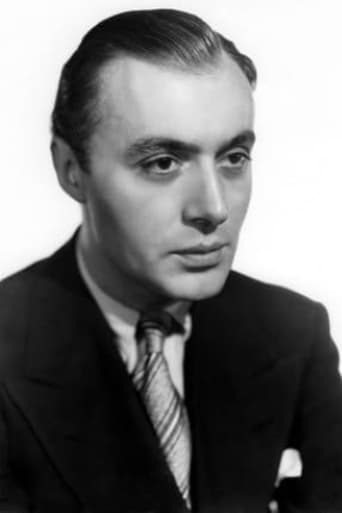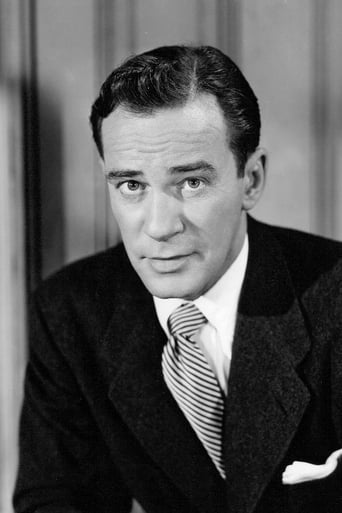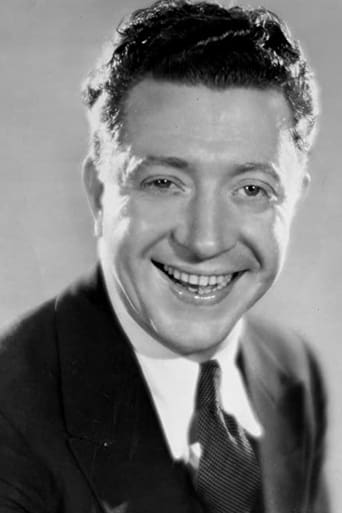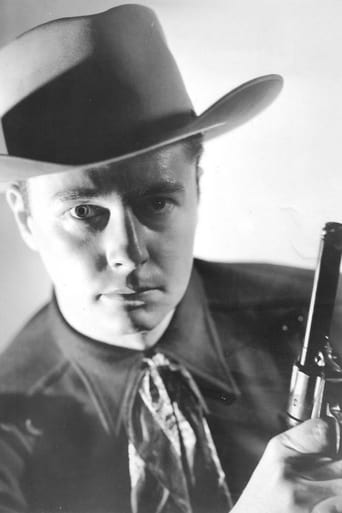Acensbart
Excellent but underrated film
Curapedi
I cannot think of one single thing that I would change about this film. The acting is incomparable, the directing deft, and the writing poignantly brilliant.
AshUnow
This is a small, humorous movie in some ways, but it has a huge heart. What a nice experience.
Portia Hilton
Blistering performances.
Kirpianuscus
a moment. and its significance. love. and its force who change everything. and the need to respect the rules. one of the films who gives more than the flavor of old fashion cinema. but good performances, seductive - dramatic story, the bitter perspective about chance, choices and sacrifice, the opportunity to come back to a broken dream and the moral lesson who remains the perfect end. a love story who becomes game of memories. at the first sigh, this is all. but only the top of the iceberg. because Charles Boyer seems be perfect as the man looking for the true love. and he has the great gift to be part of beautiful cast who gives to story brilliance and profound roots.
dimplet
The strength of Back Street is the writing in the early scenes where Ray and Walter fall in love. Too many modern movies don't know how to write romantic dialogue; the two just meet, look into each other's eyes and are eternally smitten. These modern writers could learn a lot from watching Back Street. The romance is believable, and were it not, the entire movie would not work. However, we do not know for sure as we watch early on if it is true love or infatuation. And there is a feeling that certain turns of plot are dictated by the rules of motion picture morality, but they are not. Back Street is not a simple, predictable romance.So here is my ...Spoiler alert: Back Street is an adaptation of The Scarlet Letter to the 20th century. It is about adultery, but not the usual "sex-driven adultery is bad" story. It is about adultery driven by true love. The theme of true love is one that does not go out of date, nor is it at odds with political views, such as one poster suggests, feminism. And Ray is not dependent on Walter, as she has a job and later becomes a successful dress designer. She is a fairly modern woman. The lesson of Back Street that makes it relevant for today is that we, like the prudes in The Scarlet Letter, should not be so quick to judge others for romantic or sexual improprieties. Here we are in the 21st century and we are as hypocritical as the Puritans of the 17th century. When someone is found to have committed an indiscretion, we should consider the possibility that they might actually love each other, and show some understanding. Of course, in many of the bizarre stories in the news involving politicians, love probably has nothing to do with it, so much as power and stupidity. But that is not what Back Street is about; it is about the power of true love and fate.The director Robert Stevenson is not a big name, though he did some well known movies later. The most interesting element of the movie is the use of ambiguity: We do not know for sure what sort of fellow Walter is when he enters, nor for a long time afterward; nor do we know for sure what sort of person Ray is, which is how things are in life. There are hints in the plot that the viewer picks up on, such as that Curt will one day become successful with those new-fangled automobiles. But that still doesn't tell you a lot. All considering, Back Street is a realistic movie that avoids oversimplification. It even introduces the element of pain the affair causes the family and children. The element that is out of date, of course, is that these days they would just get divorced and marry each other, the feelings of the children be damned. Is that progress?
Charles Van Dusen
Two of Hollywood's greatest actors, Charles Boyer and Margaret Sullavan, starred in this first remake of the 30s tearjerker, and theyportrayed the star-crossed lovers with great restraint. Acting, writing and direction all combined to create the ultimate BACK STREET! Warners had their crime dramas, MGM had their musicals, Paramount had their comedies, and Universal had the best weepers. This may be the very best one ever! Even the supporting cast was hand-picked with care. Richard Carlson, ever the "other guy", does his thing once more, and we want him to win for a change, but in this case, true love ruins all. Frank McHugh, as Rae's friend, gives perhaps his best performance.
bayou52
I'm the rotten apple in the bunch. Everyone loved this version and blasted the 1961 super sudser. My comments will be brief. I just detested both of the main characters. Boyer's Saxel was a pompous boor at best and a downright t**d at worst. "Well, it's not as if I had a choice about taking this job!" paraphrase he exclaims haughtily when poor, poor Rae complains about his trip abroad. (Guess not...his father-in-law might have cut off his other... well, you know...and put it in his *other* jacket pocket) It was at about this point in the movie that someone needed to start slapping Rae about every 30 seconds or so. Someone called the Hayward version "unbelievable". That 1941-Rae would dump the oh so cute and sweet Curt in favor of that French aristocratic ass is the *height* of disbelief in my opinion. I mean, for crying out loud, Saxel not only left her for an indeterminate period of time but also took his wife with him, didn't tell Rae he was back for a week when he finally did come home and managed to pop off a baby girl Saxel with the little woman while on the boat. "You know how crazy everything gets when a new Saxel is born," <paraphrase> he tells her to excuse his tardiness (with an grudging "a"). Frankly, given his degree of romantic appeal, I'd have questioned paternity. Plot-wise, nobody is that stupid. But, Crazy Rae *still* leaves poor old Curt in the lurch to stand by her t**d. Now *that's* unbelievable. At least the Hayward character had the sense to get a job. In the 1961 version events were related pretty much as they happened...in this version, we are *finally* given an explanation of Rae's foolish devotion to Saxel (ah! now it all makes sense...well, no it doesn't) in so short a time that had I gotten up to yawn I'd have missed it. Saxel's lack of personality and superior attitude never was explained...chalk it up to a bad childhood in France. When the inevitable happened, I could only hope for lightning to hit the other end of the line. Well, I could go on but I won't. If ever a movie needed soaping, sudsing and completely dry cleaned it was this one and the 1961 Hayward/Gavin versions contained just the right brand of detergent. Put it on a hanger, slap it on the rack and tag it with a "00". I confess, in retaliation and outrage I voted the 1961 version a 10.





